Clean Water
Owners of publicly-owned treatment works (towns, boroughs, municipal utilities authorities, counties, regional water authorities, other local government units, etc.) with Clean Water projects are eligible for financing through the NJWB. Private entities are eligible through public conduit borrowers. Clean Water project eligibility is expansive with construction or rehabilitations of sewage collection, treatment, disposal, well sealing, flood resiliency, CSOs, I/I, site remediation, equipment (generators, security, street sweepers, skimmer boats) and many other projects that have a water quality improvement nexus are eligible for financing. Auxiliary costs such as road paving, utility relocation, and site grading associated with the project are eligible cots. Planning and design for capital improvement projects and asset management plants for treatment works are eligible.
Several funding opportunities for below market rate financing are available with a combination of principal forgiveness, no interest, and highly rated market rates. Check the most recent Intended Use Plan to see annual funding packages, principle forgiveness, financing options, and program features.
Wastewater
Most projects associated with sewage collection, treatment, or disposal are eligible for financing, including correction of inflow/infiltration problems, sludge management and CSOs.
CSOs are a significant concern in New Jersey, particularly in vulnerable communities. Many CSO projects will be eligible for a combination of principal forgiveness and low interest financing options while benefiting from additional priority ranking points. Check the latest IUP to learn more.
Eligible Projects
- Secondary and advanced wastewater treatment
- Well Sealing, Water Meters (publicly sponsored)
- Sludge handling facilities
- Infiltration and inflow (I/I) correction
- Interceptors, pumping stations and force mains
- Sewer system rehabilitation
- New collection systems
- Correction of CSOs
- Solutions for malfunctioning septic systems
- Wastewater reuse and conservation projects
- Emergency Repair Projects that have been reported to the NJDEP Hotline to replace, in kind, the failure of an essential portion of a wastewater system and poses a substantial threat to the public health, safety, and welfare. A record of NJDEP Hotline contact is required to maintain project eligibility.
Additional Information
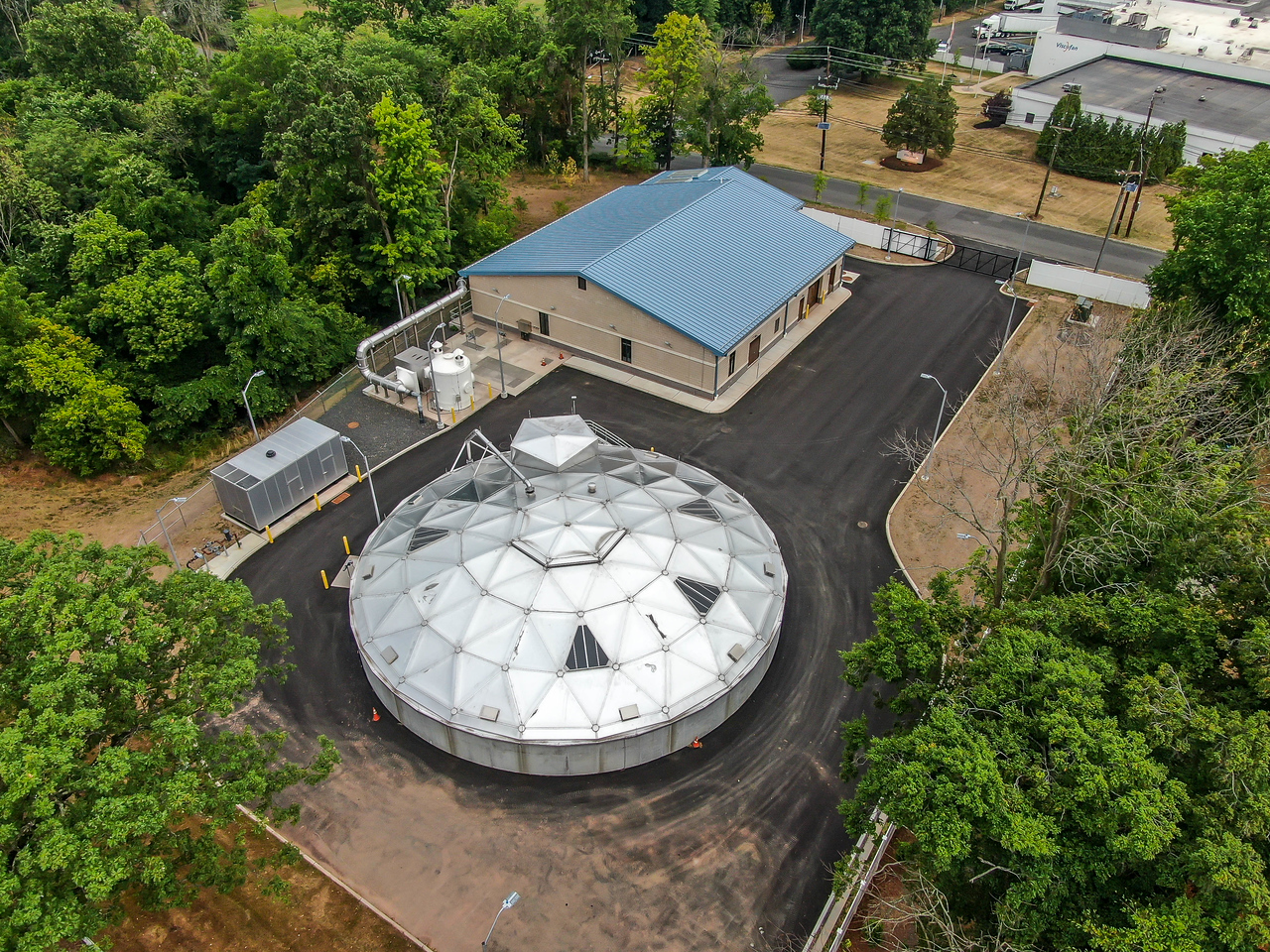
Somerset Raritan Valley Wastewater Treatment Plant Rehab Improvements
Climate Resilience for Treatment Works
Incorporate resilience guidance using the best available and most geographically relevant climate information, projections, and standards in evaluating the technical, environmental, and financial feasibility of proposed projects.
Eligible Projects
- Relocation/elevation of certain assets or entire facility above current/projected flood stage
- Installation of flood attenuation, diversion, or retention infrastructure within or beyond the footprint of a treatment works that protects the treatment works including floodwater channels/culverts, green infrastructure, and natural systems capable of mitigating a storm surge (e.g., barrier beach and dune systems, tidal wetlands, and living shorelines)
- Saltwater resistant equipment/components
- Backup generators and fuel transport and storage tanks
- Portable pumps
- Physical hardening of electrical systems/equipment
- Dry floodproofing of structures
- Elevated walls/caps for treatment tanks
- Installation of redundant equipment/components
- Overflow tanks/tunnels
Additional Information
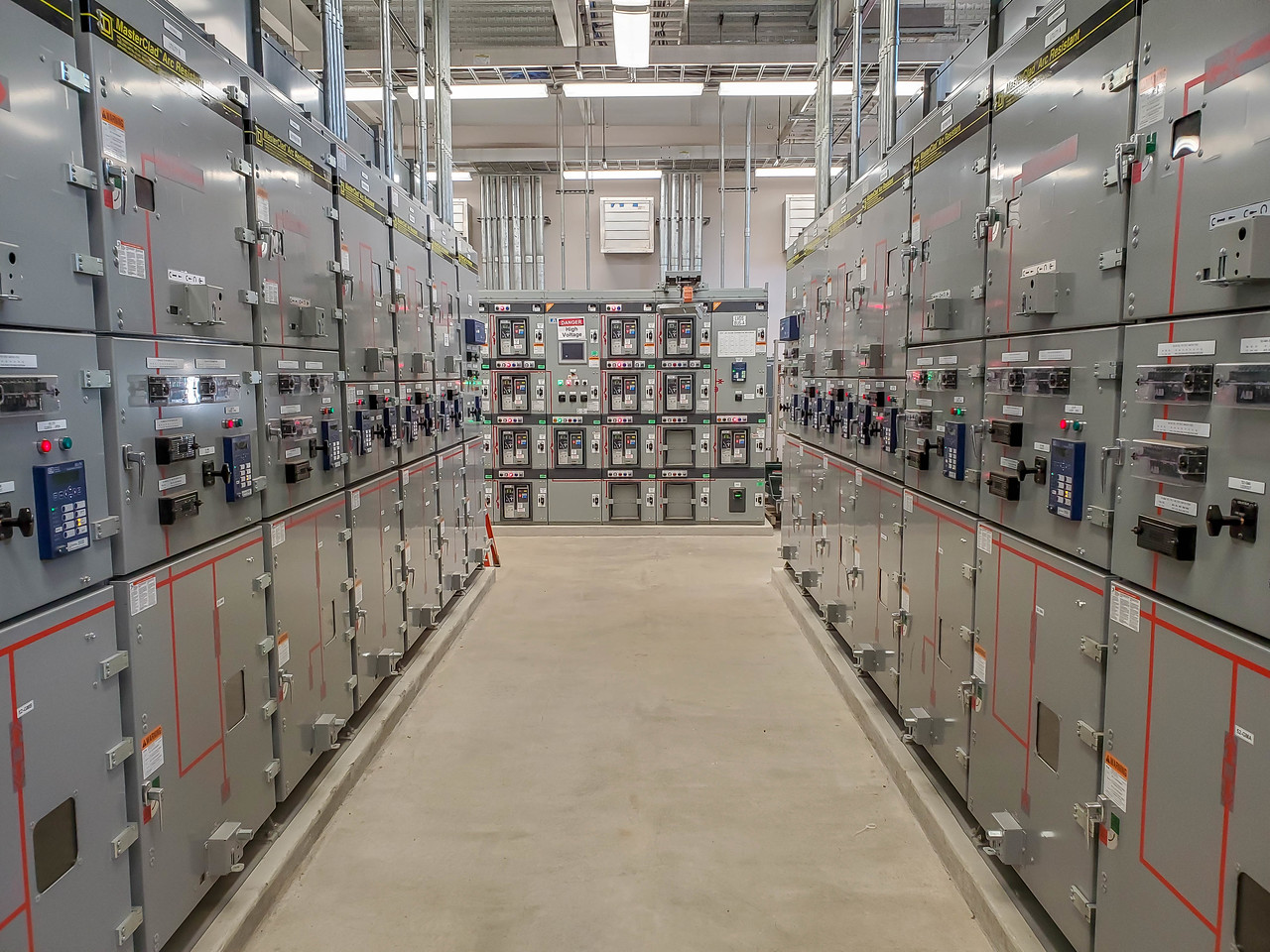
Middlesex County Utilities Authority Sayreville Pump Station Flood Mitigation
Stormwater
Eligible projects include construction, expansion or replacement of stormwater management systems, construction or expansion of basins, replacement of storm drains and rehabilitation of tide gates and extension of outfall points. Non-point source pollution, unlike pollution from industrial and sewage treatment plants, can come from many different sources. Stormwater runoff carries pollutants into our streams, rivers, reservoirs and other bodies of water.
An estimated 60 percent of current water pollution is attributed to stormwater runoff. Non-point source pollution can contaminate drinking water, destroy wildlife habitat, close beaches, kill fish and cause many other serious environmental and public health problems. Every year, millions of dollars are spent to restore and protect areas damaged by non-point source pollutants.
Projects in the Barnegat Bay area that address runoff may be eligible for additional priority points for stormwater projects.
Eligible projects include:
- Non-point Source Pollution/Stormwater management
- Construction of regional basins
- Major stormwater system rehabilitation
- Replacement of existing storm drains
- Rehabilitation of tide gates
- Extension of outfall points
- Runoff control (stream bank stabilization/ restoration)
- Stream/lake embankment restoration
- Salt dome construction
Additional Information
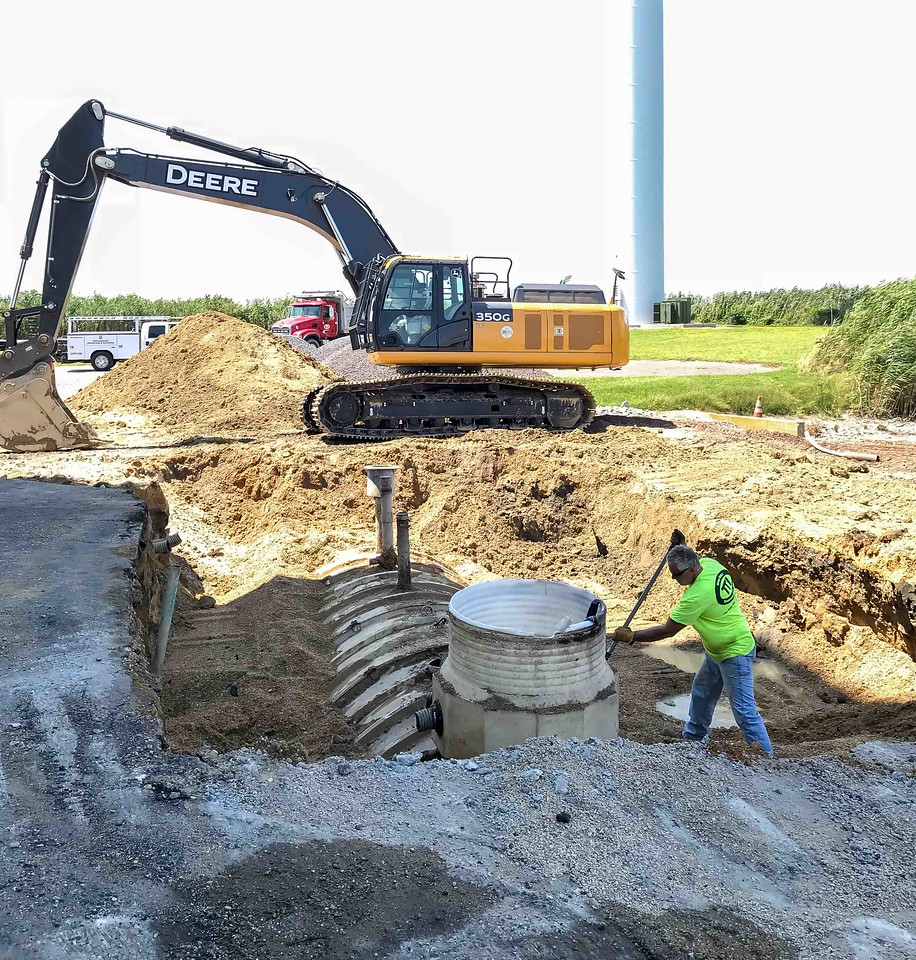
Atlantic County Utility Authority
Green Infrastructure
Green projects are clean water projects that incorporate green infrastructure and water or energy efficiency improvements* (those that reduce greenhouse gas emissions, for example). Green infrastructure includes such practices as replacing existing pavement with porous pavement, utilizing bioretention, renewable energy, constructing green roofs, creating rain gardens, and other practices that restore natural hydrology and treat stormwater runoff through infiltration into the subsoil, treatment by vegetation or soil, or stored for reuse.
Federal law requires States to reserve not less than 20% of the annual federal allocation for CWSRF capitalization grants to address green infrastructure, water or energy efficiency improvements, or other environmentally innovative activities. Learn more about Green Reserve Projects.
Eligible projects include:
- Wastewater Projects
- Secondary and advanced wastewater treatment
- Sludge handling facilities
- Infiltration and inflow correction
- Interceptors, pumping stations and force mains
- Major sewer system rehabilitation
- New collection systems
- Correction of Combined Sewer Overflows (CSOs)
- Solutions for malfunctioning septic tanks
- Wastewater reuse projects
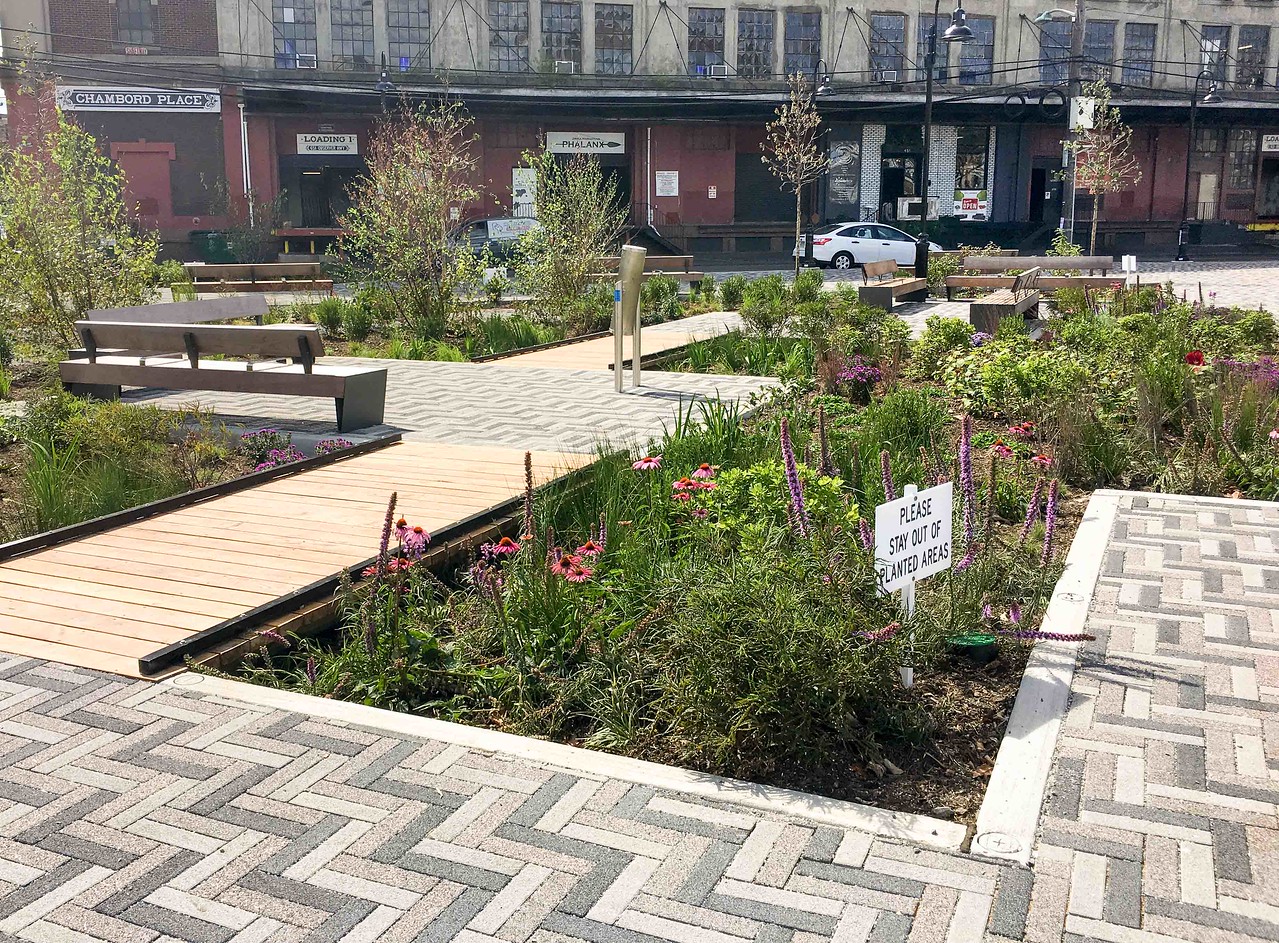
Hoboken City Rain Garden
Brownfield Redevelopment
The cleanup of abandoned and contaminated industrial sites is eligible for financing if a local or county government assumes the repayment obligation for the loan. The Water Bank will finance the removal of contaminated soil, site-capping, and the installation of stormwater controls.
Returning Brownfield sites to productive use protects and improves water quality and preserves open space. Every acre of Brownfield redevelopment spares 4.5 acres of pristine land from development. Brownfield redevelopment also boosts local tax revenue, creates jobs, revitalizes New Jersey’s cities and towns, and improves the quality of life for area residents.
The Water Bank provides loans to municipalities, counties, and public authorities to support a wide range of cleanup and remediation activities necessary to restore the Brownfield site for re-use.
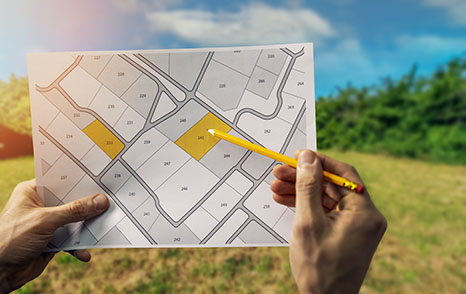
Additional Information
Landfills
Construction activities at existing landfills that have a water quality benefit are eligible for Water Bank financing. Examples include:
Eligible Projects
- Capping systems
- Liners
- Leachate collection systems
- Treatment systems
- Sewer connections
- Barge shelters
- Containment booms
- Litter fences
- Gas collection and treatment systems
- Monitoring wells
- Reclamation or reduction activities
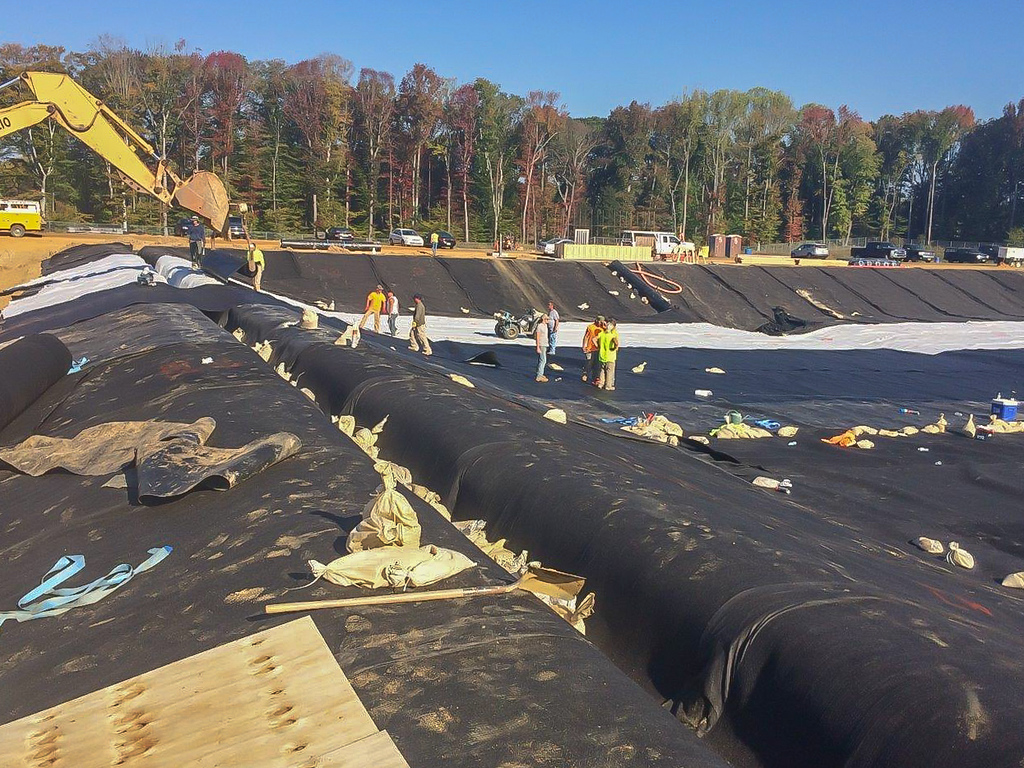
Salem County Improvement Authority Clean Water Project
Land Preservation
The Water Bank provides financing for the preservation of open space and farmland given the water quality benefit achieved through such acquisitions. The Program funds preservation with regard to properties protecting stream headwaters and corridors, wetlands, and aquifer recharge areas. Financing for land is compatible with the Green Acres Program, the Garden State Preservation Trust, and Open Space programs financed by local and county Open Space taxes.
Although lands purchased through the Water Bank for preservation as part of Open Space cannot be developed, they may be used for passive recreational activities, such as hiking, fishing, and horseback riding. Placement of conservation easements on funded parcels is a requirement, which assures that the water quality benefits are preserved in perpetuity.
The Water Bank will coordinate with the Green Acres Program, when appropriate, to maximize a community’s limited open space funds for land acquisition. Through this partnership, municipalities can receive additional resources to facilitate the purchase of larger and/or more expensive parcels.
Additional Information
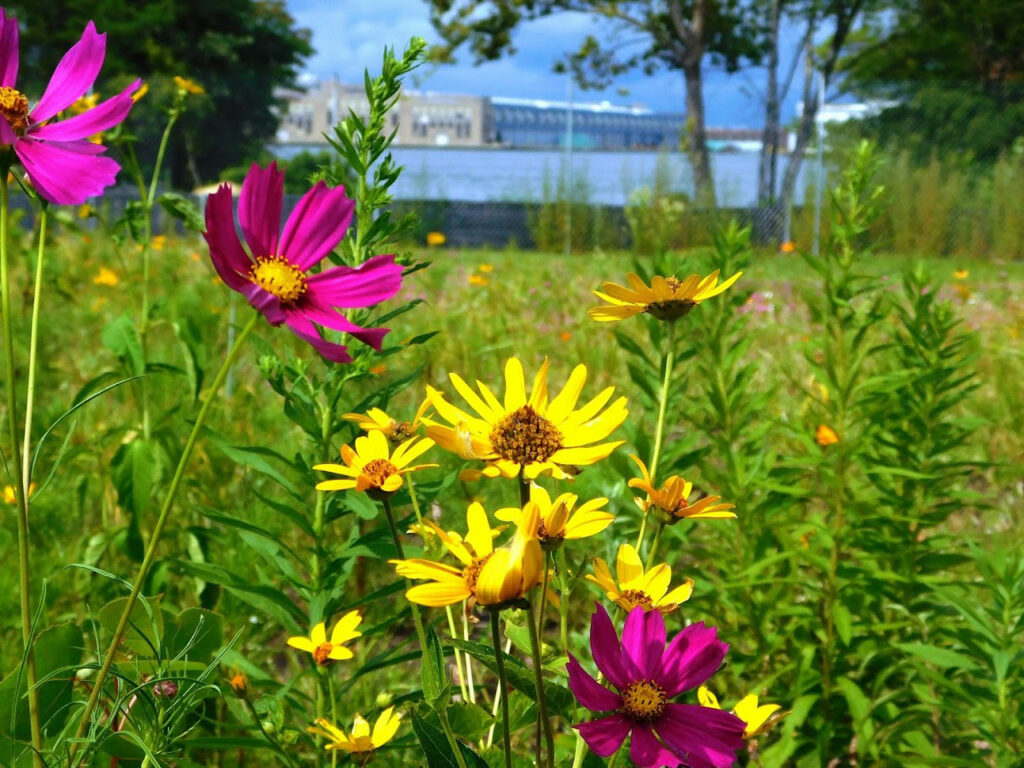
Camden County Phoenix Park
Equipment Purchase
Equipment that provides a water quality benefit can be financed under the Water Bank, including but not limited to:
Eligible Projects
Street sweepers
• Generators
• Sewer flushing and cleaning
equipment
• Dump trucks
• Crawler loaders
• Skimmer boats
• Aquatic weed harvesters
• Outfall netting
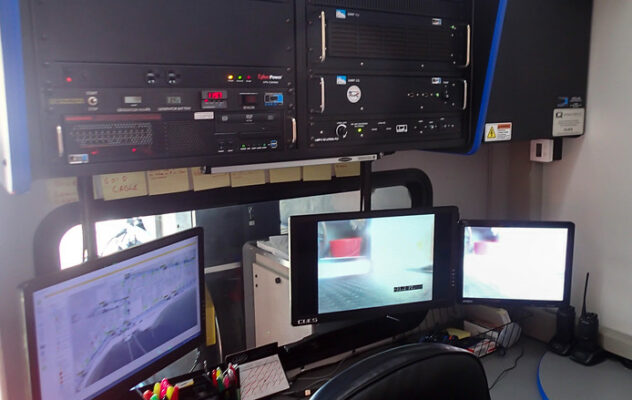
Toms River Municipal Utilities Authority Equipment Purchase
Security Monitoring
Projects designed to improve security at otherwise funding-eligible waste water facilities are eligible, including but not limited to:
Eligible Projects
• Fencing
• Lighting
• Motion detectors
• Cameras
• Secure doors
• Alternative auxiliary power sources
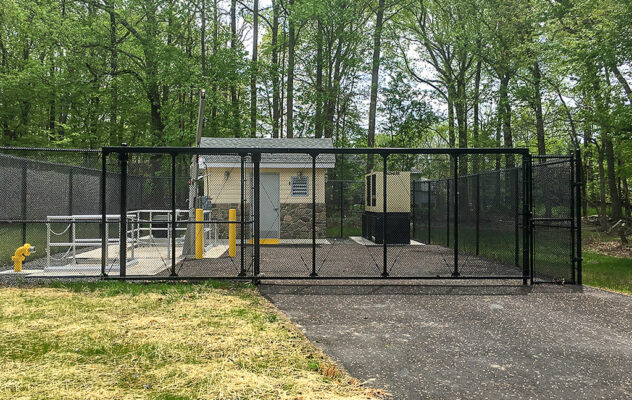
Western Monmouth Utilities Authority
Miscellaneous Allowable Costs
Miscellaneous allowable costs associated with above referenced eligible stand-alone projects include:
Eligible Projects
• Pavement restoration
• Utility relocation
• Site grading
• Purchasing land to utilize for stormwater management
Milltown Borough Electrical Substation Relocation
Questions, Comments?
Contact us.
